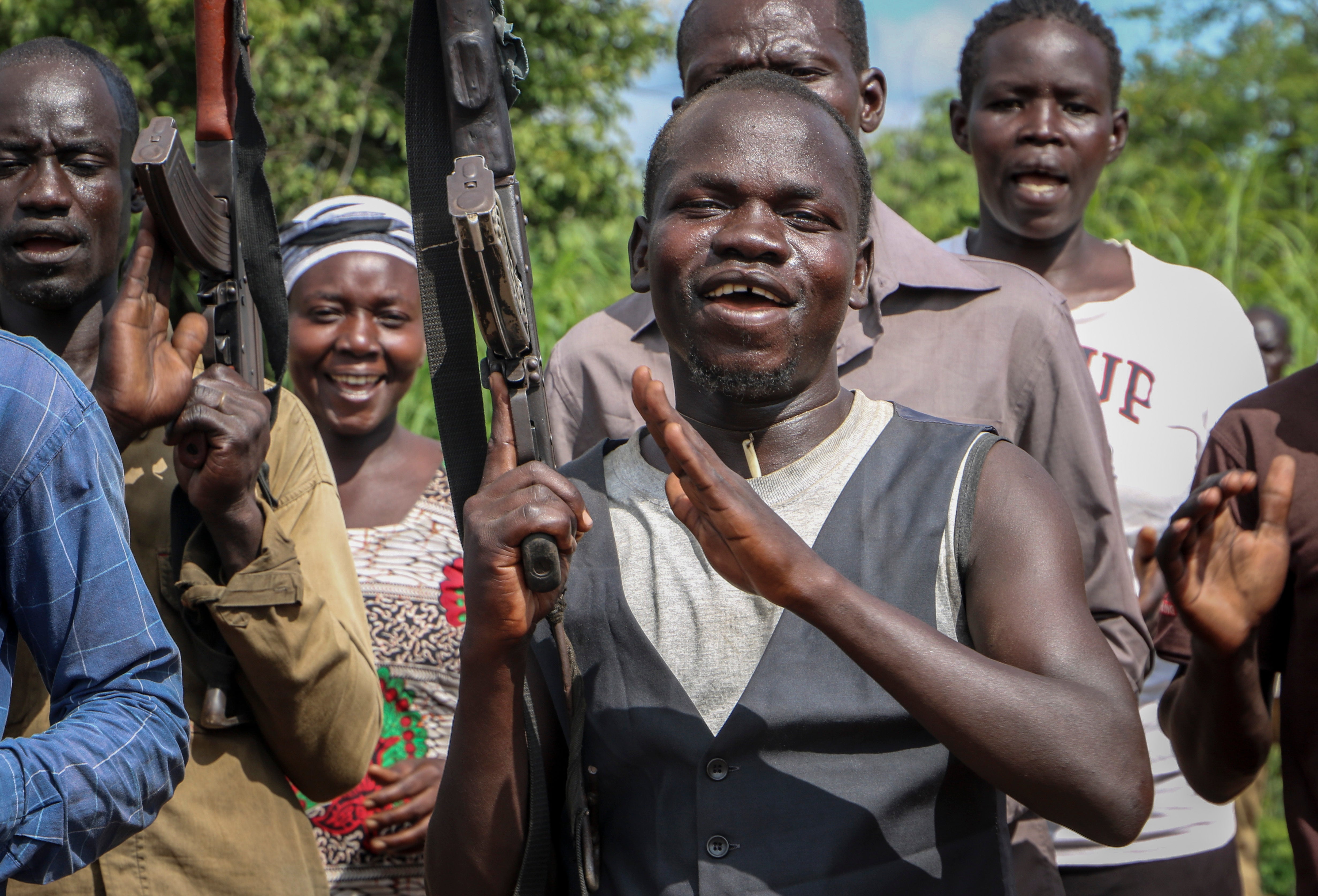UN report: South Sudan's violence 'worse' than in civil war
A United Nations commission says the scale of violence in South Sudan is “a lot worse” than during the country’s five-year civil war

Your support helps us to tell the story
From reproductive rights to climate change to Big Tech, The Independent is on the ground when the story is developing. Whether it's investigating the financials of Elon Musk's pro-Trump PAC or producing our latest documentary, 'The A Word', which shines a light on the American women fighting for reproductive rights, we know how important it is to parse out the facts from the messaging.
At such a critical moment in US history, we need reporters on the ground. Your donation allows us to keep sending journalists to speak to both sides of the story.
The Independent is trusted by Americans across the entire political spectrum. And unlike many other quality news outlets, we choose not to lock Americans out of our reporting and analysis with paywalls. We believe quality journalism should be available to everyone, paid for by those who can afford it.
Your support makes all the difference.The scale of violence in South Sudan is “a lot worse” than during the country’s five-year civil war, a United Nations commission announced Friday, accusing senior officials of supporting armed groups that at times have included tens of thousands of fighters.
The new report by the Commission on Human Rights in South Sudan was a sharp warning that civilians are as much at risk as ever for atrocities including gang rapes, forced displacement and abductions. The civil war that ended in 2018 killed an estimated nearly 400,000 people, and millions of people are still struggling to recover.
“The violence is continuing because people know they can get away with it,” commission chair Yasmin Sooka told reporters in Geneva. There is “no doubt that the coordination is really coming from the top.”
A spokesman for South Sudan President Salva Kiir said he needed to read the report before commenting. A military spokesman could not immediately be reached.
The violence in South Sudan now is localized and differs from the civil war in that some combatants are not in uniform and community leaders, militias and religious figures are involved, Sooka said.
She described attacks on civilians as being carried out along ethnic lines and often backed by “armed state and opposition forces.”
Hundreds of people were killed between February and November last year alone, the report says.
“When you look at the numbers of people who are being killed and displaced, and in fact the scale of the way in which women are experiencing sexual violence, then certainly the numbers we see are worse than what we saw in 2013 or any period thereafter in South Sudan,” Sooka said, referring to the year the civil war began.
The report comes a year after South Sudan’s unity government was formed, with former armed opposition leader Riek Machar again becoming Kiir’s deputy. But more than two years after a peace agreement was signed to end the war, further implementation has been slow.
The new, more localized fighting began shortly after the peace deal was signed, and it continues to ravage the areas of Central Equatoria, Jonglei, Warrap and the Greater Pibor Administrative area.
Some of the affected areas have also been badly damaged by some of the worst flooding in memory, with hundreds of thousands of people displaced, while the scale of hunger in some places is reportedly edging towards famine.
Against this backdrop of vulnerability, fighters are competing for power and resources, the U.N. commission says, while large parts of South Sudan “lack any pretense to security.”
“The mobilization of tens of thousands of fighters armed with sophisticated weapons is well-coordinated and highly militarized and certainly not a coincidence,“ Sooka said.
The use of newer weapons and the scale of the fighting indicate “either the involvement of state forces or external actors,” commission member Andrew Clapham added.
Asked about the international community's response, Sooka noted “some fatigue" after the investment in supporting South Sudan's quest for independence from Sudan in 2011, and “incredible disappointment” that followed the eruption of civil war just two years later.
___
Maura Ajak in South Sudan contributed.